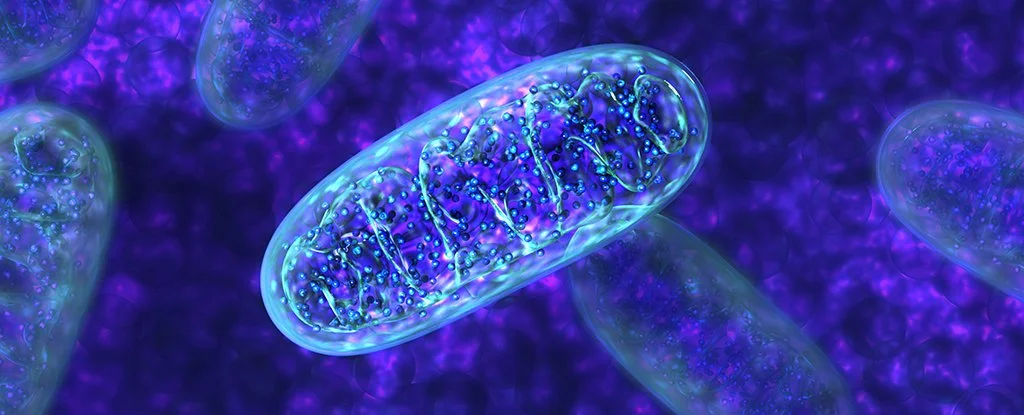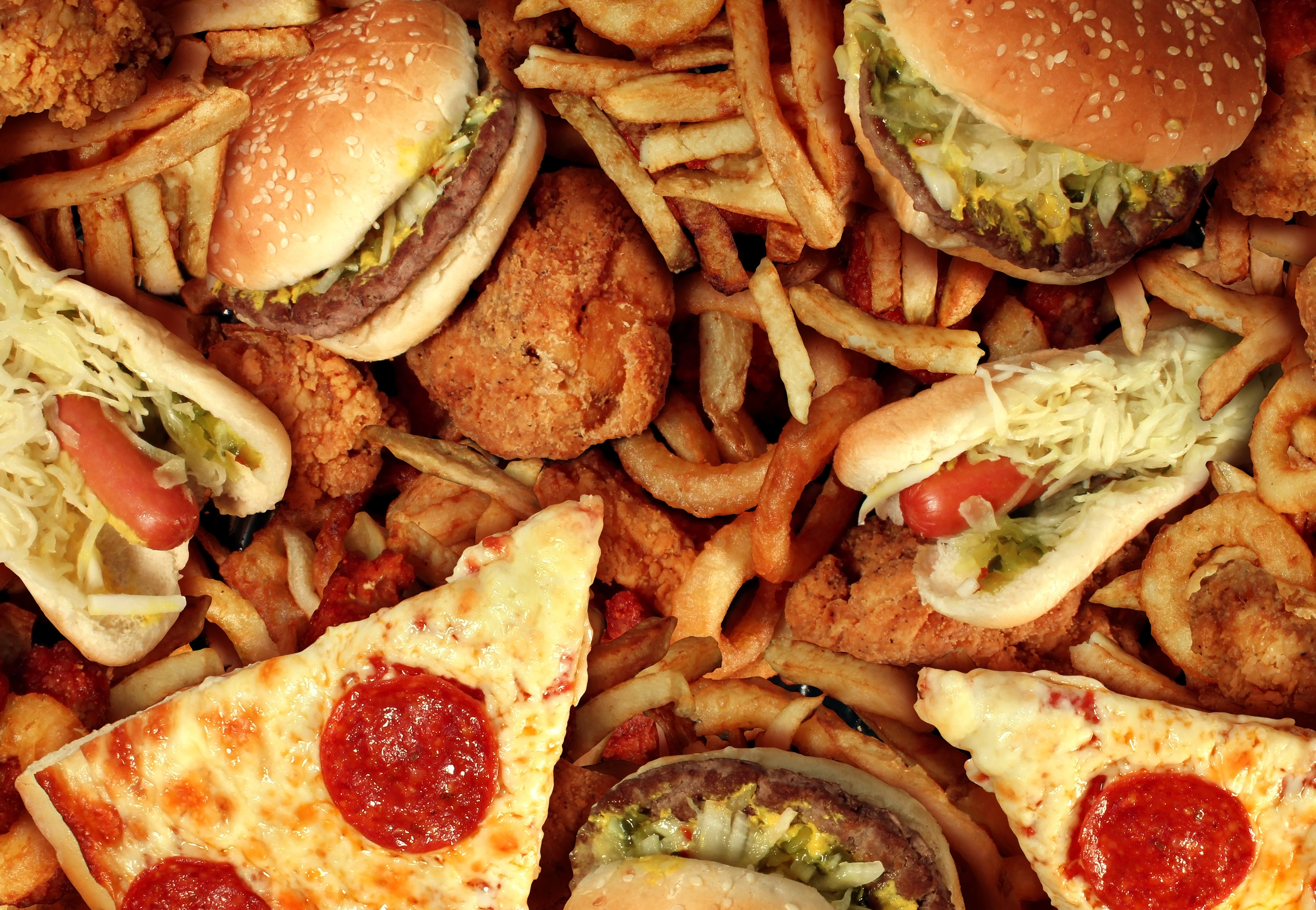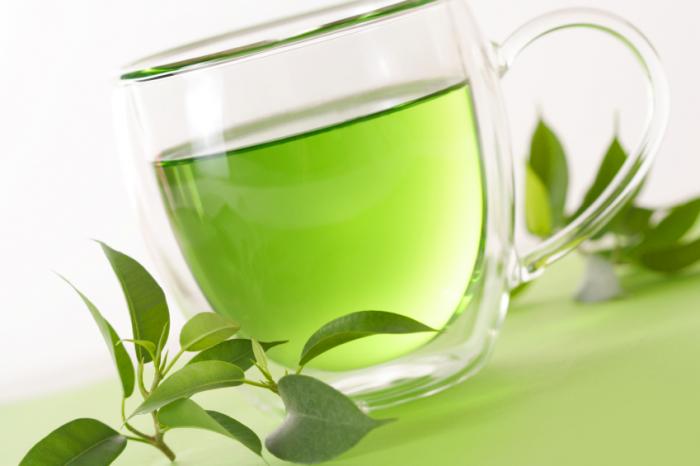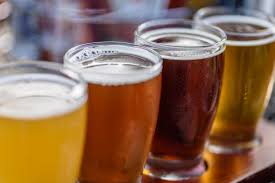It’s becoming increasingly clear that chronic mitochondria dysfunction is one of the main underlying factors that contributes to poor brain function and mental illness.
Mitochondria are unique structures within every cell of your body. You have trillions and trillions of them, making up approximately 10% of your total body weight.
Mitochondria are considered the “powerhouses of the cell,” generating most of the energy in your body by converting nutrition into adenosine-5’- triphosphate (ATP). ATP is your body’s main source of cellular fuel. You are constantly using it, and your brain needs enough of it to work properly (106-107).
Your mitochondria are critically important and need to be supported to overcome depression and anxiety, and reach optimal brain and mental health.
Mitochondria are especially abundant in your brain cells and involved in many important biological processes in the brain, including the regulation of free radicals and neurotransmitters.
In fact, monoamine oxidase (MAO), the enzyme responsible for the metabolism of monoamine neurotransmitters, is localized within the outer mitochondrial membrane (91-93).
So not surprisingly, numerous studies show that there is a correlation between impaired mitochondrial function in the brain and many psychiatric and neurodegenerative diseases, including:
Bipolar disorder
Parkinson’s disease
Chronic fatigue syndrome
Schizophrenia
Psychosis
Social anxiety
Generalized anxiety and other stress-related diseases (82-90, 94-100, 102-104).
In fact, some researchers are convinced that mitochondrial dysfunction is involved in almost every chronic disease (108-110).
Mitochondria dysfunction decreases ATP energy production and increases oxidative stress, which are commonly found in the brains of people suffering from brain and mental health disorders.
Cognitive symptoms of mitochondrial dysfunction can also include impairments in attention, executive function and memory (105).
Unfortunately, a number of psychiatric drugs damage the mitochondria and worsen the dysfunction.
But luckily, there are ways to halt and reverse mitochondrial decay.
Below are a number of strategies I’ve used over the years to support my mitochondria.
Supplements and lifestyle changes can improve mitochondrial health by increasing the availability of proteins needed for ATP production.
They also act as antioxidants, assisting the mitochondria in reducing oxidative stress.
Some of the following lifestyle changes and supplements can also increase the number of mitochondria present within the cell.
And you can start using them today to regain optimal brain and mental health.
1. Eat Nutrient-Dense, Whole Foods
Eating lots of fresh, nutrient-dense whole foods is an impactful action you can take to power your mitochondria.
In order to thrive, your mitochondria need phytonutrients, antioxidants, healthy fats and proteins.
Dr. Terry Wahls, MD, clinical professor of medicine at the University of Iowa, is a leading expert on the relationship between nutrition and mitochondrial health.
She was diagnosed with multiple sclerosis (MS) more than a decade ago but reversed the neurodegenerative brain disease by repairing her mitochondria with an intensive nutritional strategy.
She outlines how she recovered her health in her book The Wahls Protocol.
Research on her protocol shows that patients witness a “significant improvement in fatigue” (67).
She recommends eating six to nine cups of vegetables and fruits every day, including green veggies (kale, spinach), brightly colored vegetables (beets, carrots, peppers), and sulfur-rich veggies (broccoli, cauliflower).
My Free Grocery Shopping Guide for Optimal Brain Health contains a bunch of foods that you should be eating on a regular basis for optimal mitochondrial health.
Dr. Wahls also has a fascinating TED talk that you can watch if you're interested in learning more.
2. Limit Certain Foods and Ingredients
Eating poor-quality foods can also wear down your mitochondria.
Your mitochondria were not designed to deal with our current food environment and lifestyle habits.
That’s why you should limit refined sugars, processed flours, industrial oils and trans fats. They can damage your mitochondria and prevent them from properly producing energy.
Dr. Wahls also recommends you avoid all gluten, dairy and soy products for optimal mitochondrial health.
I used to strictly avoid all of these foods and I felt better when I did, but no longer need to since restoring my health.
3. Eat More Essential Fats
Healthy fats, including omega-3 fatty acids, help build and strengthen the membranes of your mitochondria. They’ve also been shown to improve mitochondrial function in the brain (5-7).
That’s why Dr. Wahls recommends eating organic grass-fed beef or wild-caught fish, such as salmon, every day.
Avocados, nuts, seeds, coconut and olive oil are also rich in healthy fats.
Supplementing with krill oil is another excellent option.
4. Exercise
Not surprisingly, exercise strengthens your mitochondria by increasing oxygen and blood flow and activating biochemical pathways that produce new mitochondria (8).
Runners have more high-functioning mitochondria than non-runners, and strength training and high-intensity interval training also increase the number of mitochondria and improve the efficiency of your existing mitochondria (9, 10).
Exercise can also increase brain-derived neurotrophic factor (BDNF).
5. Low-Level Laser Therapy (LLLT)
Low-level laser therapy (LLLT) is a treatment that uses low-level (low-power) lasers or light-emitting diodes (LEDs) to stimulate brain cells, helping them heal and function better.
There is strong evidence to suggest that LLLT supports the mitochondria.
Research shows that LLLT reduces oxidative stress and increases the production of ATP energy in mitochondria (39, 40).
These mitochondrial benefits have also been seen directly within the brain.
Studies show that LLLT increases mitochondrial activity within brain cells, and this leads to beneficial effects in behaviour (41).
LLLT treatment has also been shown to increase the number of mitochondria, and mitochondrial oxygen usage, within the brain (42, 43).
I have used these two LLLT devices myself at home to support my mitochondria and boost my brain function:
Optimal 1000 Brain Photobiomodulation Therapy Light (Combo Red/NIR) - This is a powerful device that shines 660 nm of red light and 850 nm of infrared light. You can shine it on your forehead for 5 minutes every day. You can also shine it on other parts of your head and on your entire body, including your thyroid, thymus gland and gut.
Vielight Neuro Duo – This is a transcranial-intranasal headset with 810 nm of near infrared light. It penetrates deeper into brain tissue and is absorbed better by the central nervous system. If you decide to get this one, you can use the coupon code JORDANFALLIS for a 10% discount. Some research has shown a 20-fold higher efficiency of light delivery to the deep brain through the nose instead of transcranial application (125).
You can learn more about LLLT in this post.
You should also limit your exposure to artificial blue light, as excessive blue light exposure can also wear down your mitochondria. You can learn more about the risks of too much blue light in this post.
6. Resveratrol
Resveratrol is a beneficial antioxidant compound found in grapes and red wine.
Not only does it increase BDNF levels, but it also activates the SIRT1 gene. This gene triggers a number of positive biochemical reactions that protect and improve the functioning of your mitochondria. Caloric restriction and intermittent fasting also trigger the SIRT1 gene (11-13).
In 2006, Harvard researchers found that resveratrol increases lifespan by protecting the mitochondria (14).
Resveratrol is included in the Optimal Energy supplement.
7. Caloric Restriction and Intermittent Fasting
Restricting your calories is one the best actions you can take to improve mitochondrial function.
Studies show that eating less food reduces the demand and damage on your mitochondria.
But reducing calories is tough to do and absolutely no fun.
So you can do intermittent fasting instead.
Fasting activates your mitochondria and triggers autophagy, which is an intracellular process that essentially allows your mitochondria to clean themselves by removing unwanted and damaged debris, proteins and reactive oxygen species (1, 2, 4).
This process has been shown to reduce the risk of cancer, Parkinson’s disease and Alzheimer’s disease (3).
8. Nicotinamide Adenine Dinucleotide (NADH)
NADH is a naturally-occurring compound found in the cells of all living organisms.
It plays a key role in the production of energy within the cell and is highly concentrated within your mitochondria (45).
Depletion of NADH has been linked to a number of diseases, including depression, chronic fatigue syndrome, Alzheimer’s and Parkinson’s.
But stabilized oral NADH has been shown to improve all of these conditions (46, 47, 48).
Although I don’t take it anymore, I’ve witnessed a beneficial effect from supplementing with NADH.
LLLT is also known to increase NADH in your mitochondria.
Check out this article for other ways to increase NAD.
9. Ketogenic Dieting
A ketogenic diet is a very low-carb diet.
When you restrict carbohydrate-rich foods, your body enters ketosis.
Ketosis is a metabolic state in which your body and brain run on fatty acids and “ketones” instead of glucose (36).
Ketones are an alternative source of energy for your brain cells and they support your mitochondria.
When your mitochondria are dysfunctional, following a ketogenic diet can be an effective strategy to fuel the mitochondria.
“When mitochondria are fueled by ketones instead of glucose, their ability to produce ATP is enhanced and free-radical byproducts are reduced.”
Ketogenic diets may help treat many different brain and mental health diseases including Alzheimer’s, Parkinson’s, epilepsy and autism.
Exogenous ketones can also help you get into ketosis and experience the mitochondrial-boosting effects of ketones very quickly.
10. B Vitamins
B vitamins play an essential role in maintaining mitochondrial function.
In fact, your mitochondria will be compromised if you have a deficiency of any B vitamin (37).
Deficiency is more likely if you take certain medications.
Vitamin B1, B2, B3, B5, B6 and B12 are all included in the Optimal Energy supplement for this reason.
11. Ribose
Ribose is a five carbon sugar created naturally by your body.
Even though it’s a sugar, research suggests it does not raise blood sugar levels.
Instead, your body stores it in the mitochondria (49, 50).
Ribose is used by the mitochondria to produce ATP and if you don’t have enough, you’ll experience low energy (51).
Chronic stress can deplete ribose, and certain conditions have been linked to chronic ribose deficiency, including depression and chronic fatigue syndrome.
People can supplement with ribose if they struggle with these disorders because it can help reduce mental and physical lethargy (52, 53).
Ribose is also included in Optimal Energy.
12. Coenzyme Q10 (CoQ10)
Coenzyme Q10 (CoQ10) is an antioxidant molecule found in every cell of your body.
It’s particularly concentrated in the mitochondria, playing a key role in the production of energy.
It also protects the mitochondria from oxidative damage.
Without CoQ10, your body cannot synthesize ATP because CoQ10 is an essential component of the mitochondrial electron transport chain.
Many doctors are unaware that CoQ10 is an excellent treatment for many brain health issues, including depression, chronic fatigue syndrome, and Alzheimer’s disease.
Low levels of CoQ10 can cause brain fog, mental fatigue, difficulty concentrating, memory lapses, depression and irritability (68-70).
Researchers have found that CoQ10 levels are significantly lower in the depressed patients (71).
Unfortunately, chronic oxidative stress and medications can further deplete CoQ10.
But supplementing with CoQ10 can increase your mitochondrial energy production and reduce symptoms of depression and chronic fatigue (71).
Food sources with high natural concentrations of CoQ10 include organic red palm oil and grass-fed beef heart (72, 73).
But supplementing with it will give you a more significant mitochondrial boost.
13. Pyrroloquinoline quinone (PQQ)
Pyrroloquinoline quinone (PQQ) is a vitamin-like enzyme and potent antioxidant found in plant foods.
It has a wide range of brain health and mitochondrial benefits.
It’s been shown to preserve and enhance memory, attention, and cognition by protecting the mitochondria from oxidative damage.
It also promotes the growth of new mitochondria in the brain (56-59).
Since it helps grow new mitochondria, it may help you if you suffer from depression, since fewer mitochondria have been found in people with depression (63).
Reactive nitrogen species (RNS) and reactive oxygen species (ROS) cause severe stress on brain cells and mitochondria.
PQQ has also been shown to suppress RNS and ROS (60-62).
Researchers have also found that supplemental PQQ can be neuroprotective by increasing mitochondrial activity levels (64-66).
I personally never really noticed much of anything from PQQ. So I don’t take it anymore and didn’t include it in Optimal Energy.
14. Magnesium
Magnesium is a vital mineral within your body.
Mitochondria are considered magnesium “storage units” because they hold onto a lot of your body’s magnesium.
Magnesium also protects the mitochondria and plays a role in the production and transfer of ATP within the mitochondria.
And research shows that if you have a deficiency in magnesium, your brain cells will have fewer mitochondria, and they will be less healthy (54, 55).
This is just another reason to supplement with magnesium every day.
15. Carnitine and Alpha Lipoic Acid
Carnitine is an amino acid that improves mitochondrial activity and plays an important role in energy production.
It’s known to transport fatty acids directly into the mitochondria of your brain cells.
It’s also required to produce ATP and deficiencies are associated with reduced mitochondrial function in the brain (74).
Supplementing with carnitine makes it easier for fatty acids to cross your blood-brain barrier and nourish the mitochondria within your brain. This can improve your mood, memory and energy levels.
Several studies show that carnitine eases depressive symptoms and improves quality of life in patients with chronic depression (75-78).
And individuals with autism often have reduced levels of carnitine within their brain (79).
Carnitine is synergistic with Alpha Lipoic Acid (ALA), meaning that when you take them together, they are more effective at supporting the mitochondria in your brain.
ALA is a mitochondrial enzyme and antioxidant. It is fat soluble and can easily cross your blood-brain barrier.
It’s been shown to improve cognition by reducing oxidative stress in the brain.
It also protects existing mitochondria and creates new mitochondria in the brain (80, 101).
Both ALA and carnitine are included together in Optimal Energy.
16. Thiamine
Thiamine, also known as Vitamin B1, is an essential water-soluble nutrient that cannot be made by the body.
It’s used in nearly every cell in the body and it’s especially important for supporting energy levels and mitochondrial functioning in the brain.
It’s also required by nerve cells and other supporting cells in the nervous system.
Research shows that thiamine deficiency induces oxidative stress, resulting in mitochondrial abnormalities in the brain (21-22).
Healthy food sources of thiamine include green peas, beef liver, asparagus, pecans, spinach, sunflower seeds, macadamia nuts, oranges, cantaloupe and eggs.
These foods are included in my Free Grocery Shopping Guide for Optimal Mental Health.
Thiamine is also included in Optimal Energy.
17. Creatine
Creatine is a molecule produced in the body and found in foods, particularly meat, eggs, and fish.
Creatine is also available as a supplement.
Athletes, bodybuilders, wrestlers, sprinters often take extra creatine to gain more muscle mass.
It’s an incredibly well-researched supplement and safe to take regularly.
Supplementing with creatine can also support the brain.
It's been shown to have neuroprotective effects. It rapidly produces energy to support brain cell function.
Researchers have also found that creatine supplementation improves function of mitochondria in the brain (25).
18. Curcumin
Curcumin is the most heavily researched compound within turmeric, the spice that gives curry its yellow colour.
Curcumin protects mitochondria and prevents mitochondrial dysfunction in the brain (111-113).
Curcumin can be found in both Optimal Energy and Optimal Antiox.
19. Malic Acid
Malic acid, also known as malate, is an intermediate of the Krebs cycle.
It’s a key step in the pathway of energy production by the mitochondria.
And it has a number of health benefits because it improves mitochondrial function.
Malate supplementation has been shown to increase the availability of NAD+, which is necessary for producing ATP.
Malate also increases NADPH levels, which is a fundamental antioxidant in the body that promotes mitochondrial function (114).
That’s why I’ve included malic acid in the Optimal Energy supplement.
20. Niacinamide
Niacinamide, also known as nicotinamide, is a vitamin found in foods.
It’s also often taken as a supplement.
Niacinamide is the precursor to NAD+ and therefore supplementation can increase levels of this molecule and improve mitochondrial function.
Researchers have found that niacinamide prevents energy depletion in the brain (115).
It also improves the mitochondrial quality of brain cells by inducing autophagy and causing dysfunctional mitochondria to fragment (116).
21. N-Acetyl-Cysteine
N-Acetyl-Cysteine (NAC) is a modified form of the amino acid cysteine.
It’s also the precursor to glutathione, your body’s master antioxidant.
Nowadays, we’re exposed to so many environmental toxins, which cause oxidative stress in the body and deplete our reserves of cysteine and glutathione.
But supplementing with NAC can increase and normalize your cysteine and glutathione levels.
This can combat and reduce oxidative stress in your brain, which can then help treat several mental illnesses.
NAC can also help support your mitochondria.
In one study, NAC treatment for 9 weeks reduced oxidative damage to the mitochondria (117).
And in multiple cell studies, NAC improved mitochondrial function by reducing oxidative stress (118-119).
22. Succinic acid
Succinic acid, also known as succinate, is an intermediate molecule of the Krebs cycle that plays a significant role in the electron transport chain.
It can be purchased as a supplement to boost energy production by the mitochondria.
Succinic acid has been shown to prevent structural and functional damage to the mitochondria caused by oxidative stress (120).
And in brain cells that have mitochondrial dysfunction, succinic acid supplementation improved mitochondrial functioning by increasing glucose and oxygen usage. This led to increased levels of ATP energy (121).
For this reason, succinic acid is in the Optimal Energy supplement.
23. EGCG
Epigallocatechin-3-Gallate (EGCG) is the main polyphenol found in green tea.
It’s been shown to have anti-inflammatory and neuroprotective effects.
EGCG accumulates within the mitochondria and activates a number of proteins related to mitochondrial function (122-124).
I personally drink organic green tea regularly, usually in place of coffee on days when I’m relaxing.
However, it’s important to keep in mind that the body isn't very good at absorbing EGCG and distributing it to the brain and other tissues.
That's why researchers often use large dosages of concentrated EGCG in their studies instead of green tea.
But unfortunately, large dosages of concentrated EGCG have been shown to cause liver toxicity.
So you could supplement with large dosages of concentrated EGCG and see some benefits.
But you'd be damaging your liver at the same time.
Not good.
So what should you do? How do you absorb EGCG and get the amazing benefits of it without damaging your liver?
You take it with Vitamin C.
Research shows that you can enhance the absorption and availability of EGCG by taking it with Vitamin C (9).
That's why the Optimal Antiox supplement includes a small and safe amount of EGCG, plus 500 mg of Vitamin C.
This significantly enhances the absorption of EGCG, and ensures you get all the brain and mental health benefits of EGCG (without the harm).
24. Citicoline
Citicoline (also known as CDP-Choline) is one of the most bioavailable forms of choline, an essential B vitamin.
You need to get choline from food, but most people do not get enough because very few foods in the Western diet contain high levels of it.
That’s why supplementation is often necessary for optimal brain health.
Citicoline is a supplemental form of choline that has anti-inflammatory and neuroprotective effects.
Research shows that citicoline slows down the aging of mitochondria in the brain (125).
It also significantly enhances mitochondrial energy production and increases ATP levels in the frontal lobe of the brain (125).
Citicoline significantly improves my focus and mental energy.
You can also find some choline in foods such as beef liver and egg yolks, but the effects of Citicoline are much more noticeable and immediate because it quickly passes the blood-brain barrier and supports your brain.
Make sure you read this article to learn more about the remarkable benefits of Citicoline.
25. Ginkgo Biloba
Ginkgo Biloba is a plant that has been used in China for thousands of years to treat a number of health problems.
It’s one of the top-selling natural supplements in the world, and it’s even a prescription herb in Germany.
Ginkgo Biloba is most commonly used to improve brain health because it increases brain blood flow and improves memory, mood, mental energy, and attention in both healthy and unhealthy individuals.
It even reduces the risk of dementia and Alzheimer’s disease!
Researchers have discovered that one of the ways it supports brain function is by improving mitochondrial function and increasing the production of ATP in brain cells (126-127).
It even restores ATP levels after mitochondrial damage (128).
Ginkgo Biloba is included in the Optimal Brain supplement.
Conclusion
Paying attention to your mitochondria is crucial for optimal brain and mental health.
Luckily there are a number of dietary and lifestyle habits that can protect and support mitochondrial function.
The following steps will ensure your body and brain have healthier and more abundant mitochondria:
Take Optimal Energy. It’s an all-in-one mitochondrial supplement. It includes the 17 best natural compounds proven to boost mitochondrial functioning in the brain.
Eat nutrient-dense, whole foods, including plenty of fruits and vegetables. Download my free food guide for a shopping list of the best foods to eat.
Limit refined sugars, processed flours, industrial oils, trans fats, gluten and processed dairy.
Eat organic grass-fed beef and wild-caught fish, or supplement with krill oil.
Exercise
Try LLLT
Restrict calories and/or fast intermittently
Follow a cyclic ketogenic diet and/or take exogenous ketones
If you follow these strategies, there’s no doubt that you can improve your mitochondrial health and naturally restore your mood and energy levels.
Please share this post with one of your friends or family members who you think might benefit from protecting and supporting their mitochondria, because it really is an underappreciated and unknown aspect of optimal brain and mental health.
References:
(1) http://nutritionandmetabolism.biomedcentral.com/articles/10.1186/1743-7075-10-63
(2) http://www.ncbi.nlm.nih.gov/pmc/articles/PMC3630798/
(3) http://www.ncbi.nlm.nih.gov/pmc/articles/PMC3630798/
(4) http://www.hindawi.com/journals/jar/2011/807108/
(5) http://www.ncbi.nlm.nih.gov/pubmed/24396061
(6) http://www.ncbi.nlm.nih.gov/pubmed/24972878
(7) https://lipidworld.biomedcentral.com/articles/10.1186/1476-511X-11-142
(8) http://www.nutritionandmetabolism.com/content/10/1/63
(10) http://www.ncbi.nlm.nih.gov/pmc/articles/PMC3883043/
(11) http://www.ncbi.nlm.nih.gov/pubmed/15749705
(12) http://www.ncbi.nlm.nih.gov/pmc/articles/PMC2492662/
(13) http://www.ncbi.nlm.nih.gov/pubmed/24449278
(15) http://www.nrjournal.com/article/S0271-5317(03)00234-3/abstract
(16) http://www.ncbi.nlm.nih.gov/pubmed/20840838
(17) http://www.nature.com/tp/journal/v5/n1/full/tp2014131a.html
(18) http://www.scielo.br/scielo.php?script=sci_arttext&pid=S1516-44462011000400003
(19) http://www.ncbi.nlm.nih.gov/pubmed/22776356
(20) http://www.fasebj.org/content/19/12/1657.abstract
(21) http://www.ncbi.nlm.nih.gov/pubmed/6493495
(22) http://link.springer.com/article/10.1007/s13105-013-0242-y
(23) http://www.ncbi.nlm.nih.gov/pubmed/16102804
(25) http://www.ncbi.nlm.nih.gov/pubmed/12657421
(26) http://www.ncbi.nlm.nih.gov/pubmed/21423579
(27) http://www.ncbi.nlm.nih.gov/pmc/articles/PMC3100547/
(28) http://www.ncbi.nlm.nih.gov/pubmed/15183071
(29) http://www.fasebj.org/content/20/2/269.abstract
(30) https://biolres.biomedcentral.com/articles/10.1186/0717-6287-47-74
(31) http://www.ncbi.nlm.nih.gov/pubmed/26278015
(32) http://www.ncbi.nlm.nih.gov/pubmed/19211721
(33) http://www.ncbi.nlm.nih.gov/pmc/articles/PMC3670924/
(34) http://www.ncbi.nlm.nih.gov/pubmed/26365487
(35) http://www.ncbi.nlm.nih.gov/pubmed/21061051
(36) http://www.ncbi.nlm.nih.gov/pubmed/17332207
(37) http://www.ncbi.nlm.nih.gov/pubmed/16765926
(38) http://www.ncbi.nlm.nih.gov/pubmed/2476986/
(39) http://www.ncbi.nlm.nih.gov/pubmed/10365442/
(40) http://www.ncbi.nlm.nih.gov/pubmed/6479342/
(41) http://www.ncbi.nlm.nih.gov/pubmed/17693028/
(42) http://www.ncbi.nlm.nih.gov/pmc/articles/PMC3945284/?report=classic
(43) http://www.ncbi.nlm.nih.gov/pubmed/22850314
(44) http://www.ncbi.nlm.nih.gov/pubmed/23675984
(45) http://www.nadhenergy.eu/what-does-nadh-do.html
(46) http://www.ncbi.nlm.nih.gov/pubmed/10071523
(47) http://www.ncbi.nlm.nih.gov/pmc/articles/PMC4346380/
(48) http://www.ncbi.nlm.nih.gov/pubmed/15134388
(50) http://thealbanyjournal.com/2012/01/energize-yourself-with-d-ribose/
(53) http://www.ncbi.nlm.nih.gov/pubmed/17109576
(54) http://www.ncbi.nlm.nih.gov/pmc/articles/PMC2790427/
(55) http://www.ncbi.nlm.nih.gov/pmc/articles/PMC1172515/
(56) http://www.ncbi.nlm.nih.gov/pubmed/19861415
(57) http://www.humanclinicals.org/biopqq/
(58) http://www.ncbi.nlm.nih.gov/pmc/articles/PMC2212345/
(59) http://www.ncbi.nlm.nih.gov/pubmed/18591768
(60) http://www.ncbi.nlm.nih.gov/pubmed/20178828
(61) http://www.ncbi.nlm.nih.gov/pubmed/12383230
(62) http://www.ncbi.nlm.nih.gov/pubmed/19026989
(63) http://www.ncbi.nlm.nih.gov/pubmed/21159390
(64) http://journals.plos.org/plosone/article?id=10.1371/journal.pone.0021779
(65) http://www.ncbi.nlm.nih.gov/pubmed/19699263
(66) http://www.ncbi.nlm.nih.gov/pubmed/16709402
(67) http://www.ncbi.nlm.nih.gov/pmc/articles/PMC4011484/
(68) http://www.ncbi.nlm.nih.gov/pubmed/23313551
(69) http://www.ncbi.nlm.nih.gov/pubmed/25386668
(70) http://www.ncbi.nlm.nih.gov/pubmed/21799249
(71) http://www.ncbi.nlm.nih.gov/pubmed/20010493
(72) http://coconutresearchcenter.org/hwnl_4-2.htm
(73) http://www.westonaprice.org/modern-diseases/coenzyme-q10-for-healthy-hearts/
(74) http://lpi.oregonstate.edu/mic/dietary-factors/L-carnitine
(75) http://www.ncbi.nlm.nih.gov/pubmed/12047496
(76) http://www.ncbi.nlm.nih.gov/pubmed/16316746
(77) http://www.ncbi.nlm.nih.gov/pubmed/21443422
(78) http://www.ncbi.nlm.nih.gov/pubmed/17543140
(79) http://www.ncbi.nlm.nih.gov/pmc/articles/PMC4382850/
(80) http://www.lifeextension.com/magazine/2011/8/Lipoic-Acid-Reverses-Mitochondrial-Decay/Page-01
(81) http://www.nutritionandmetabolism.com/content/10/1/63
(82) http://www.ncbi.nlm.nih.gov/pubmed/16815381
(83) http://www.ncbi.nlm.nih.gov/pubmed/18979198
(84) http://www.ncbi.nlm.nih.gov/pubmed/19664343
(85) http://www.ncbi.nlm.nih.gov/pubmed/18428021
(86) http://www.ncbi.nlm.nih.gov/pubmed/11579422
(87) http://www.ncbihttp://www.ncbi.nlm.nih.gov/pubmed/23650447nlm.nih.gov/pubmed/23650447
(88) http://www.ncbi.nlm.nih.gov/pubmed/16027739
(89) http://www.ncbi.nlm.nih.gov/pubmed/18177933
(90) http://www.ncbi.nlm.nih.gov/pubmed/18235426
(91) http://psych.lf1.cuni.cz/zf/publikace/b005.pdf
(92) http://www.ncbi.nlm.nih.gov/pubmed/21414088
(94) http://www.pnas.org/content/112/50/15486.full.pdf
(95) http://www.nature.com/tp/journal/v4/n6/full/tp201444a.html
(96) http://bmcmedicine.biomedcentral.com/articles/10.1186/s12916-015-0310-y
(97) http://www.ncbi.nlm.nih.gov/pmc/articles/PMC3640606/
(99)http://hypotyreos.info/attachments/079_Mitokondriell%20dysfunktion%20i%20depressiva%20sjukdomar.pdf
(100) http://www.ncbi.nlm.nih.go v/pmc/articles/PMC4382850/
(101) http://www.ncbi.nlm.nih.gov/pubmed/17605107
(102) http://www.ncbi.nlm.nih.gov/pubmed/24189435
(103) http://www.sciencedirect.com/science/article/pii/S0925443909002427
(104) http://www.ncbi.nlm.nih.gov/pubmed/20114042
(105) http://archpsyc.jamanetwork.com/article.aspx?articleid=210694
(107) http://www.umdf.org/site/c.8qKOJ0MvF7LUG/b.7934627/k.3711/What_is_Mitochondrial_Disease.htm
(108) http://www.ncbi.nlm.nih.gov/pubmed/17239370
(109) http://www.ncbi.nlm.nih.gov/pmc/articles/PMC4566449/
(110) https://riordanclinic.org/wp-content/uploads/2015/01/mitochondria-and-cancer-1.pdf
(111) https://accelerating.org/articles/curcumin.html
(112) https://www.ncbi.nlm.nih.gov/pubmed/23422877
(113) https://www.ncbi.nlm.nih.gov/pubmed/26254982
(114) http://www.plosone.org/article/info%3Adoi%2F10.1371%2Fjournal.pone.0058345
(115) https://www.ncbi.nlm.nih.gov/pubmed/10566977
(116) https://www.ncbi.nlm.nih.gov/pubmed/19473119
(117) https://www.ncbi.nlm.nih.gov/pmc/articles/PMC4312826/
(118) https://www.ncbi.nlm.nih.gov/pubmed/17917164
(119) https://www.ncbi.nlm.nih.gov/pmc/articles/PMC4726696/
(120) https://www.ncbi.nlm.nih.gov/pubmed/3032929
(121) https://www.ncbi.nlm.nih.gov/pmc/articles/PMC5430749/
(122) https://www.ncbi.nlm.nih.gov/pubmed/26731017
(123) https://www.ncbi.nlm.nih.gov/pmc/articles/PMC3670924/
(124) https://www.ncbi.nlm.nih.gov/pubmed/16797120
(125) https://www.ncbi.nlm.nih.gov/pmc/articles/PMC4824764/
(127) https://www.ncbi.nlm.nih.gov/pubmed/17977008
(128) https://www.frontiersin.org/articles/10.3389/fphar.2015.00206/full













